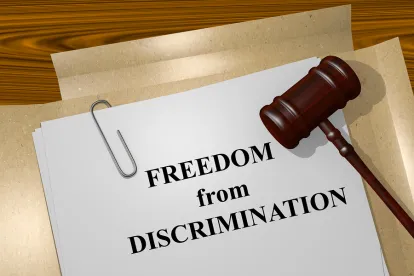Concluding their 2019 legislative sessions, New York and Connecticut adopted sweeping new discrimination and harassment requirements — mandating additional training, expanding available remedies and making it easier for victims to obtain judicial relief.
New York
In June, the New York General Assembly adopted several significant changes to New York State’s anti-discrimination statute (known as the Executive Law). Governor Cuomo is expected to sign the legislation. Among other changes, the amendments:
- Eliminate the jurisdictional requirement that manufacturers must employ four or more employees to come under the law – now all manufacturers of any size are covered;
- Eliminate the requirement that harassment must be “severe or pervasive” to be actionable – now any conduct which is more than “petty” or a “slight” annoyance will be actionable;
- Make a manufacturer potentially liable for discriminatory acts directed at non-employees (such as vendors, interns, or other third-parties);
- Allow a victim to prevail even when she or he cannot identify any individual treated more favorably under similar circumstances;
- Allow a victim to recover punitive damages in court litigation;
- Allow a victim to recover attorneys’ fees in most cases where liability has been found; and
- Extends from one year to three years the time for claimants to bring discrimination claims to the state agency.
In addition, the legislator expanded the 2018 ban on the use of non-disclosure agreements. Effective 60 days after adoption, manufacturers cannot require the non-disclosure of any discrimination or retaliation settlements unless the agreement is written in “plain English” and, if applicable, the primary language of the complainant, and the non-disclosure obligation is the preference of the complainant (as evidenced by a non-waivable 21 days to consider the non-disclosure obligation and 7 days to revoke acceptance of it). Effective January 2020, any non-disclosure provisions must expressly exclude restrictions on speaking to law enforcement, the EEOC, the SDHR or an attorney hired by the employee.
The legislature also expanded the 2018 mandatory arbitration ban to apply to all claims of discrimination or retaliation, not just sexual harassment claims.
Connecticut
Next door, the Connecticut General Assembly amended its state discrimination law in several significant ways. While current law required manufacturers to provide sexual harassment training for all supervisors within 6 months of their hiring or promotion to a supervisor position, the effective October 1, 2019, all manufacturers with more than 3 employees must provide sexual harassment training for all employees. Current employees must be trained by October 1, 2020, while employees or supervisors hired after October 1, 2019 must be trained within 6 months of hiring (or placement in a supervisory position). Training must be “updated” every 10 years.
In addition, effective October 1, 2019, manufacturers with more than 3 employees must prominently post a notice of its sexual harassment policy and provide a copy of the notice to all employees within 3 months of being hired. The notice must be posted on the employer’s intranet site (if the employer maintains one) or, if sent by email, the email must state in the subject line: “Sexual Harassment Policy.”
A new provision prohibits a manufacturer, when responding to an allegation of harassment, from changing the claimant’s “conditions of employment” without his or her written consent.
Finally, the legislature expanded the period for a claimant to file a charge of discrimination or retaliation with the state agency from 180 days to 300 days.


 />i
/>i

